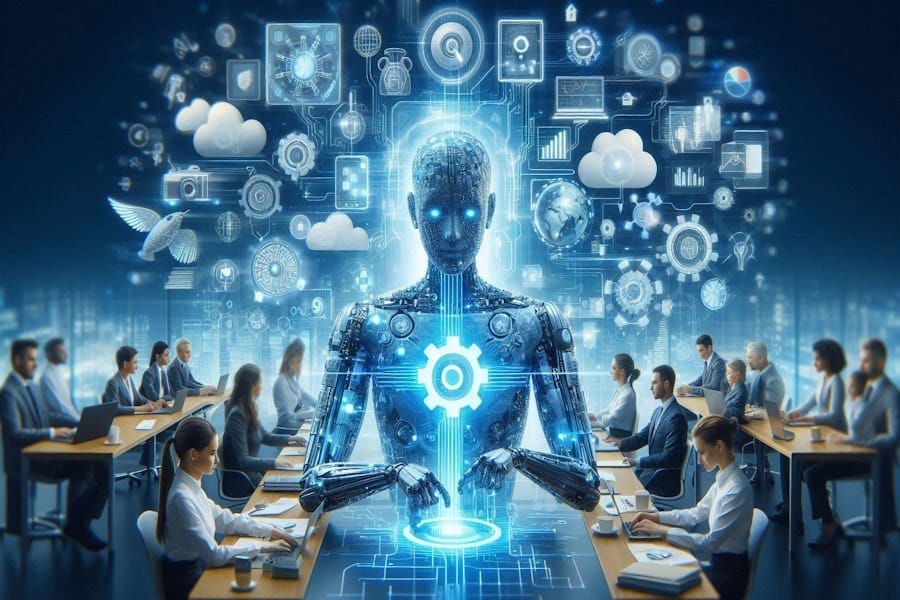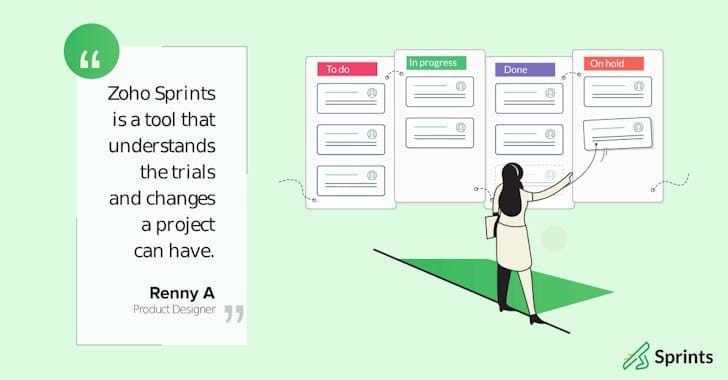How AI Is Reshaping Key Job Markets Across Industries

Publish Date: Last Updated: 10th February 2025
Author: nick smith- With the help of CHATGPT
AI is no longer just a futuristic concept—it’s here and reshaping job markets across a variety of industries. From reducing repetitive tasks to transforming entire workflows, AI is creating new efficiencies, augmenting creativity, and shifting the nature of work. Below, we explore how AI is making a tangible impact on several key employment markets, backed by real-world examples and facts.
1. Legal Profession
- Impact: AI is transforming the legal sector by streamlining tasks like legal research, contract analysis, and case prediction. AI-powered tools can analyze vast amounts of case law, helping lawyers conduct research in a fraction of the time.
- Real-World Example: Tools like ROSS Intelligence, an AI-driven legal research platform, allow lawyers to find relevant case information quickly, reducing research time by up to 80%. eDiscovery platforms, such as Relativity and Everlaw, use AI to identify and organize critical documents for litigation, saving firms thousands of hours in document review.
- Statistics: According to a report from Deloitte, 100,000 legal jobs could be automated by 2036, particularly in areas such as paralegal and administrative support.
2. Hollywood
- Impact: AI is impacting Hollywood from scriptwriting to video editing and even casting. AI tools can now analyze scripts for market potential, predict box-office success, and even enhance production through CGI and visual effects.
- Real-World Example: Warner Bros. has partnered with Cinelytic, an AI-driven platform, to predict film success by analyzing historical audience data, actor popularity, and release timings. AI also plays a role in CGI and VFX; for example, digital de-aging technology in movies like The Irishman by Netflix leveraged machine learning to alter actors' appearances.
- Statistics: A 2021 PwC report noted that AI could help increase revenues in the entertainment industry by up to 15% through enhanced audience targeting, content optimization, and production efficiencies.
3. Animators
- Impact: AI is increasingly being used in animation, from automating in-between frames to generating realistic character movements. AI-powered animation tools are making it easier to create high-quality animations with fewer resources.
- Real-World Example: Disney’s AI tool, Meander, has already been used in films like Paperman to seamlessly blend 2D and 3D animation. DeepMotion uses AI to create realistic character animations based on video input, which significantly reduces manual work.
- Statistics: Market research firm Tractica forecasts that AI animation software will contribute to a 20% increase in animation industry productivity by 2025, as animators increasingly rely on AI tools to streamline labor-intensive tasks.
4. Manufacturing
- Impact: AI has been a game-changer in manufacturing, enhancing predictive maintenance, quality control, and robotics. AI-driven robots can perform complex tasks with precision, while predictive maintenance tools help prevent costly equipment breakdowns.
- Real-World Example: General Motors (GM) uses AI in its manufacturing process to predict machine failures before they happen, reducing downtime. Similarly, BMW employs AI-powered robots to inspect and ensure product quality on the assembly line.
- Statistics: McKinsey reports that AI-enabled predictive maintenance can reduce machine downtime by up to 20% and lower maintenance costs by up to 10%. AI in manufacturing is expected to contribute $400 billion annually to the global economy by 2025.
5. Accountancy
- Impact: AI is automating tasks in accounting, such as data entry, tax preparation, and audit processes. By leveraging AI, accountants can now focus on strategic advisory roles rather than routine calculations and compliance.
- Real-World Example: Big Four accounting firms, including PwC and Deloitte, use AI to automate data processing in audits, reducing manual work. Xero and QuickBooks, popular accounting software, now use machine learning to categorize expenses and detect anomalies in financial transactions.
- Statistics: According to the World Economic Forum, 94% of accountants anticipate that automation will free them from repetitive tasks, allowing them to focus on value-added services. AI could save the accounting industry over $50 billion by 2026.
6. Programming
- Impact: AI tools are helping programmers write code more efficiently, debug errors, and even generate code autonomously. Although AI won't replace programmers, it is already transforming the workflow by handling repetitive or straightforward coding tasks.
- Real-World Example: GitHub Copilot, an AI-powered code assistant by GitHub, suggests lines of code based on context, speeding up the development process. DeepMind’s AlphaCode can solve competitive programming problems, hinting at AI's potential to handle complex coding tasks.
- Statistics: A survey by GitHub shows that 60% of Copilot users reported increased productivity. The AI code assistant market is projected to grow by 25% annually as more developers adopt AI-powered tools.
7. Scriptwriters
- Impact: AI tools are now capable of drafting basic scripts, generating plot ideas, and assisting writers by suggesting lines or editing text. This is particularly useful in generating first drafts or brainstorming creative ideas.
- Real-World Example: OpenAI’s GPT-3 has been used to create film and ad scripts, while companies like ScriptBook use AI to evaluate the potential success of screenplays, helping studios make informed decisions.
- Statistics: According to a 2020 survey, 57% of scriptwriters believe that AI can assist with idea generation, while 30% view it as a tool to help with editing and refinement. This shows a growing acceptance of AI as a collaborative writing tool rather than a replacement.
8. Administration
- Impact: Administrative roles are among the most impacted by AI, as it takes over scheduling, data entry, email management, and other repetitive tasks. AI virtual assistants can now handle basic administrative duties, allowing human employees to focus on more complex responsibilities.
- Real-World Example: Google's AI-powered Assistant can handle scheduling, call screening, and routine data processing tasks. Tools like x.ai automate meeting scheduling, while platforms like UiPath use robotic process automation (RPA) to handle administrative workflows.
- Statistics: A study by Gartner found that AI automation in administration could reduce operational costs by up to 30% and save up to 20% of an administrative worker’s time. By 2025, it’s estimated that nearly 70% of routine administrative tasks will be automated.
Conclusion
AI is already reshaping these job markets, transforming workflows, enhancing productivity, and reducing the time spent on repetitive tasks. While some fear that AI may replace human roles, the reality is that it is redefining rather than eliminating these jobs. Workers in these industries must prepare to adapt by developing new skills and embracing AI as a tool for collaboration rather than competition.
Trending AI News Articles
AI Questions and Answers section for How AI Is Reshaping Key Job Markets Across Industries (Part 1)
Welcome to a new feature where you can interact with our AI called Jeannie. You can ask her anything relating to this article. If this feature is available, you should see a small genie lamp above this text. Click on the lamp to start a chat or view the following questions that Jeannie has answered relating to How AI Is Reshaping Key Job Markets Across Industries (Part 1).
Be the first to ask our Jeannie AI a question about this article
Look for the gold latern at the bottom right of your screen and click on it to enable Jeannie AI Chat.





